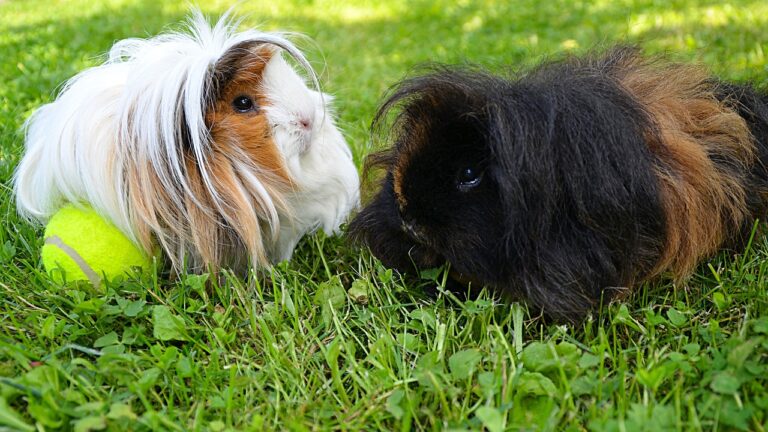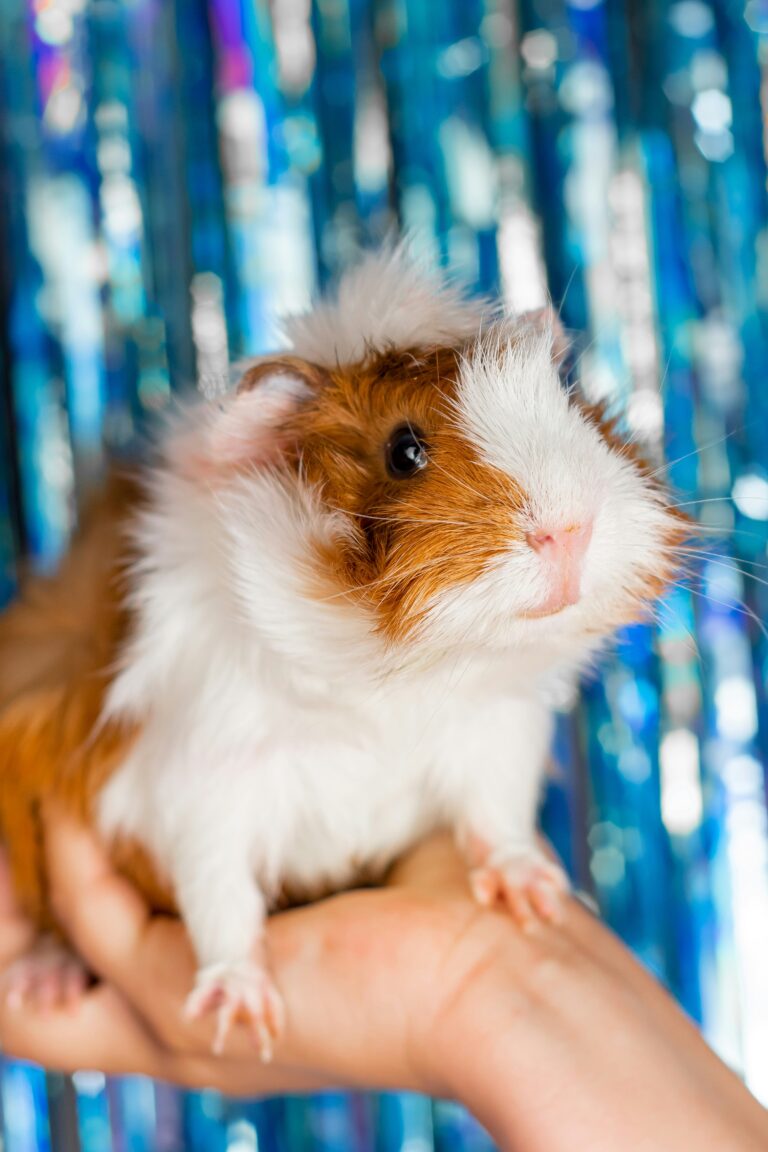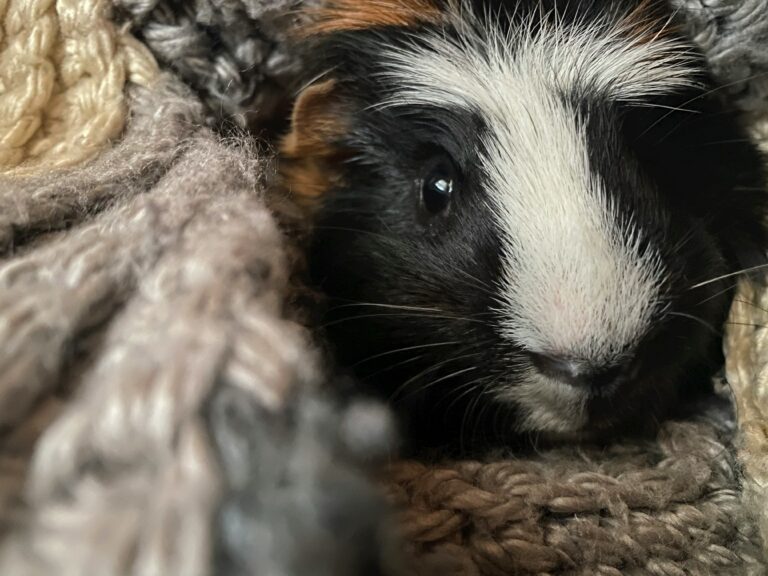Can Guinea Pigs Eat Pineapple?
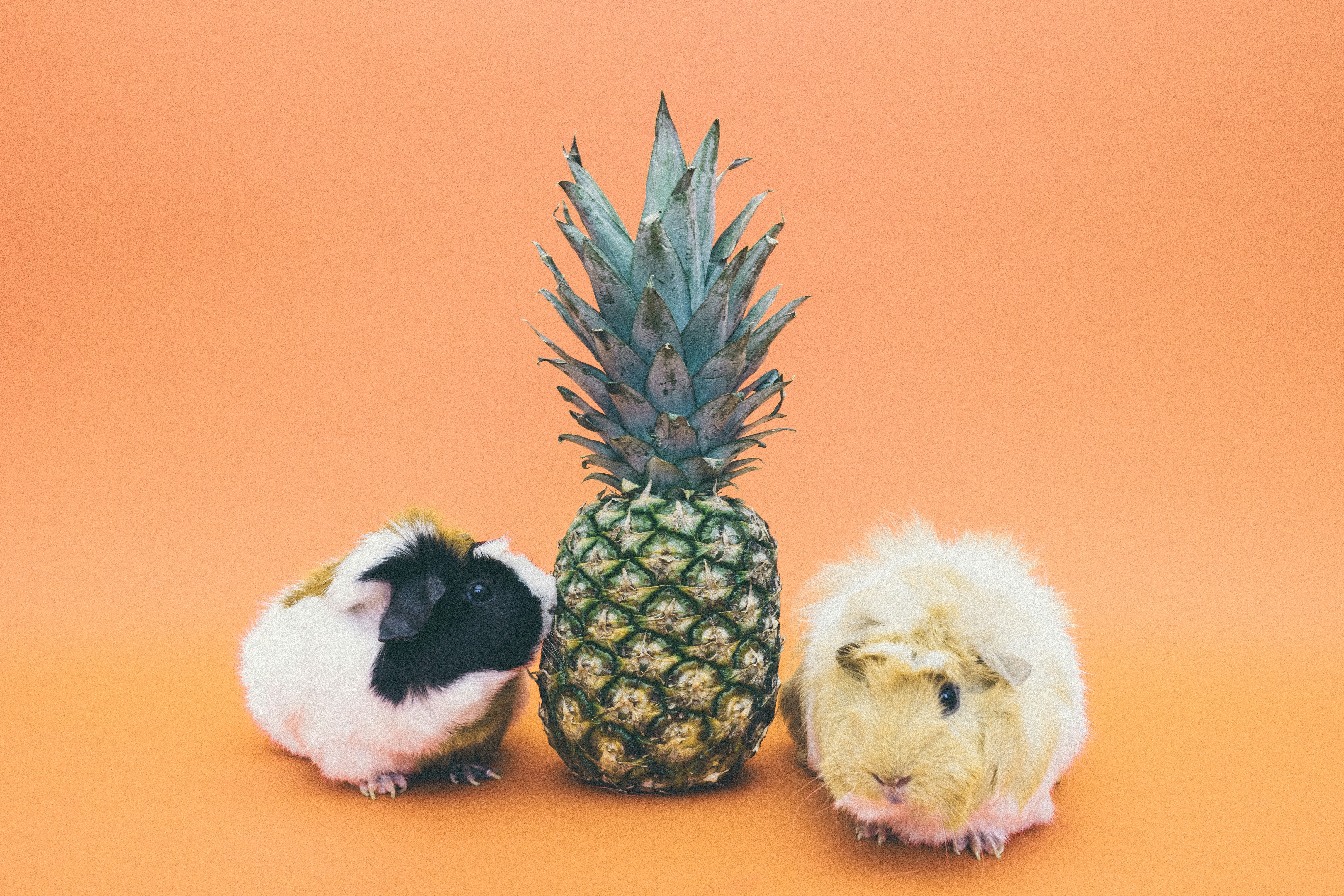
A Balanced Guinea Pig Diet
Maintaining a balanced diet for your guinea pig is crucial to ensure their health and longevity. Guinea pigs, like all pets, have specific dietary needs that must be met to keep them healthy and active. Their diet primarily consists of hay, fresh vegetables, high quality pellets, and a small portion of fruits. Understanding what is safe and beneficial for them to eat can prevent potential health issues and promote a happy life.
A guinea pig’s diet should be rich in fiber, low in sugar, and full of essential vitamins and minerals. Hay is the staple of their diet, providing the necessary fiber for proper digestion and dental health. Alongside hay, guinea pigs benefit from a variety of fresh vegetables, such as bell peppers, carrots, and leafy greens like kale and spinach. Fruits are usually given as occasional treats due to their higher sugar content.
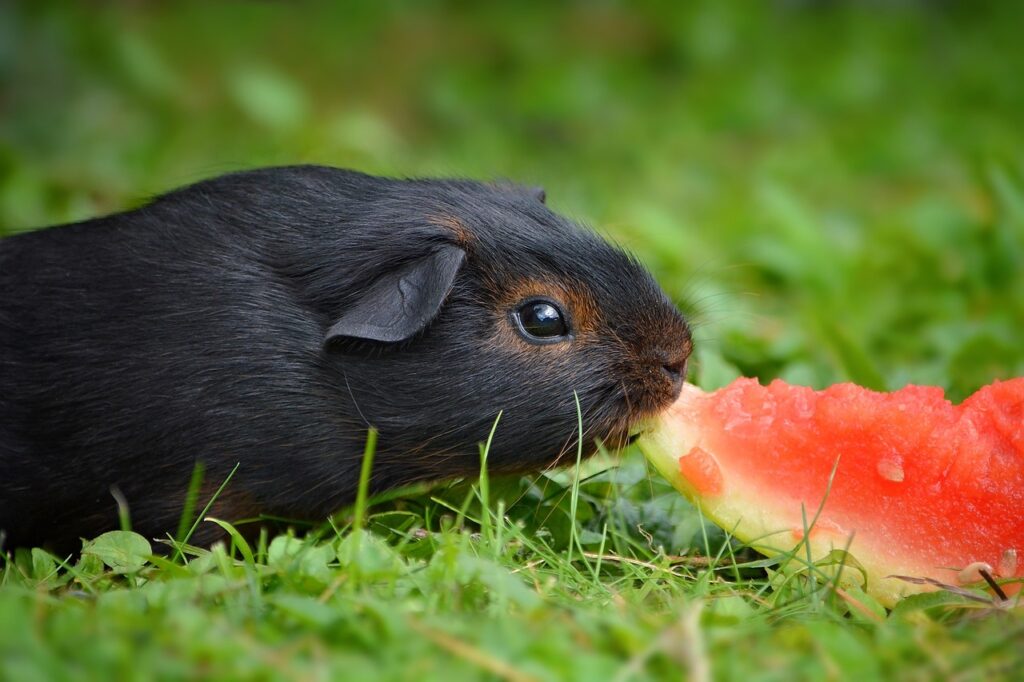
Nutritional Benefits of Pineapple
The pineapple is a tropical fruit that is rich in various nutrients, making it a healthy treat for humans. But how does it fare for guinea pigs?
Vitamins and Minerals
Pineapple is loaded with essential vitamins and minerals such as Vitamin C, manganese, and antioxidants. Vitamin C is particularly important for guinea pigs as they cannot produce this vitamin on their own and need it from their diet. A deficiency in Vitamin C can lead to scurvy, a common health issue in guinea pigs.
Manganese is another important mineral found in pineapple, playing a role in bone formation, blood clotting, and reducing inflammation. The antioxidants in pineapple help combat free radicals in the body, supporting overall health and well-being.
Hydration Benefits
Pineapple has a high water content, which helps keep guinea pigs hydrated. Proper hydration is essential for their overall health, helping to maintain bodily functions and prevent dehydration. Given the importance of hydration, especially during warmer months, providing watery fruits like pineapple can be beneficial.
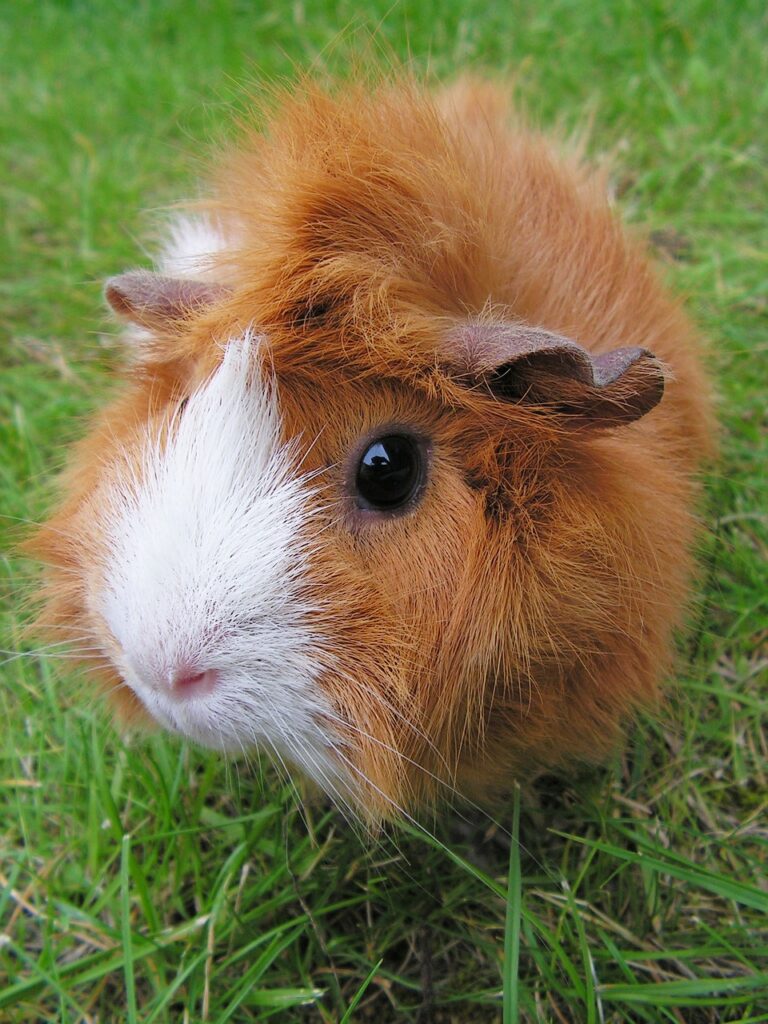
Can Guinea Pigs Eat Pineapple?
Yes, guinea pigs can eat pineapple, but it must be given in moderation.
Safe Portions
When introducing pineapple to your guinea pig’s diet, start with a small piece, about the size of a small dice. Observing how your pet reacts to the new food is crucial before increasing the portion size. A good rule of thumb is to offer no more than a teaspoon-sized piece at a time.
Frequency of Feeding
Pineapple should not be a daily treat. It is best to offer pineapple to your guinea pig once or twice a week to avoid any potential health issues related to overconsumption. This moderation helps in balancing their diet without causing an overload of sugar or acidity.
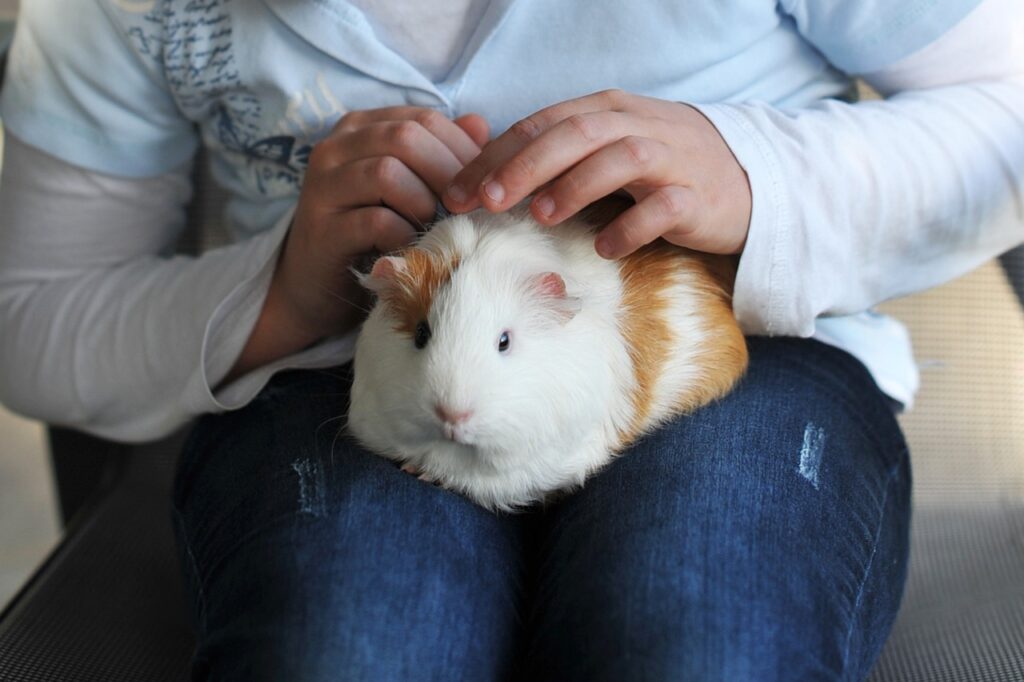
Health Benefits of Pineapple for Guinea Pigs
In moderation, pineapple can offer several health benefits to your guinea pig.
Immune System Support
The high Vitamin C content in pineapple helps boost the immune system, protecting guinea pigs from common illnesses and infections. Regular intake of Vitamin C can aid in the prevention of scurvy, characterized by symptoms such as lethargy, swollen joints, and weight loss.
Digestive Health
Pineapple contains bromelain, an enzyme that aids in digestion. This can help guinea pigs with their digestive processes, ensuring they effectively break down and absorb nutrients from their food. Bromelain can also help reduce inflammation in the gut, promoting better digestive health.
Skin and Coat Health
The antioxidants in pineapple can contribute to healthier skin and a shinier coat, promoting overall better physical condition. These antioxidants help combat oxidative stress, which can cause cellular damage and aging. A diet rich in antioxidants supports a healthy coat, reducing shedding and promoting a glossy appearance.

Potential Risks of Feeding Pineapple to Guinea Pigs
Despite the benefits, there are several risks to consider when feeding pineapple to guinea pigs.
High Sugar Content
Pineapple is high in sugar, which can be problematic for guinea pigs if consumed in large quantities. Excessive sugar intake can lead to obesity, diabetes, and other health issues. To prevent these problems, it is essential to limit the amount of pineapple and other sugary treats in your guinea pig’s diet.
Acidic Nature
The acidic nature of pineapple can cause mouth sores and digestive upset in guinea pigs if they eat too much. The acids in pineapple can irritate the sensitive tissues in a guinea pig’s mouth, leading to discomfort and reluctance to eat. It’s essential to balance their diet to avoid these issues.
Allergic Reactions
Some guinea pigs may be allergic to pineapple. Symptoms of an allergic reaction include itching, swelling, and respiratory issues. Always monitor your pet after introducing any new food. If any signs of an allergic reaction appear, discontinue feeding pineapple immediately and consult a veterinarian.
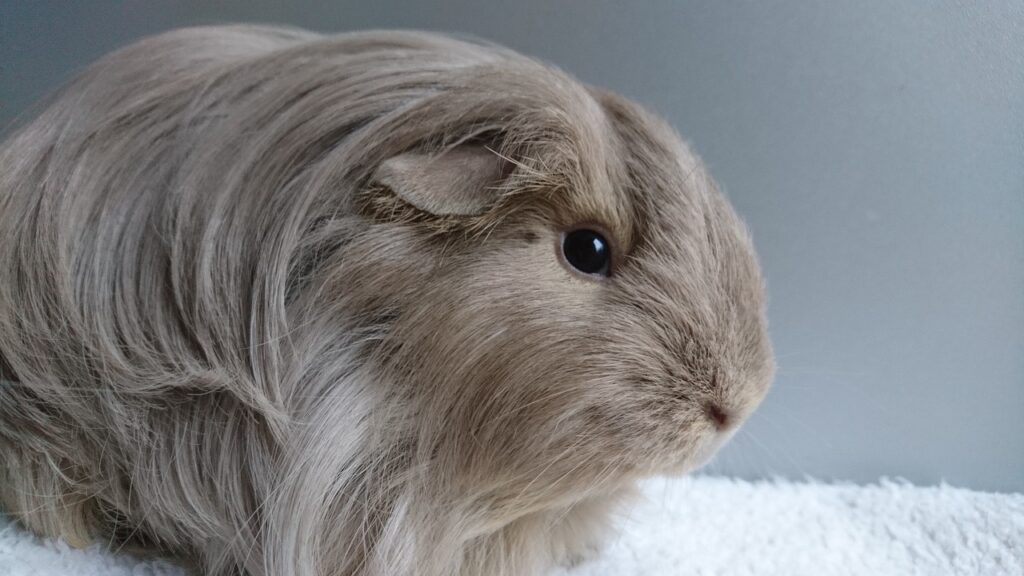
How to Introduce Pineapple to Your Guinea Pig’s Diet
Introducing new foods to your guinea pig should be done carefully.
Steps for Safe Introduction
- Start Small: Offer a small piece of pineapple and observe how your guinea pig reacts.
- Gradual Increase: If there are no adverse reactions, you can gradually increase the amount over time.
- Variety: Ensure pineapple is just one part of a varied diet, balanced with hay, vegetables, and other safe fruits.
When introducing pineapple, make sure to trim off the outer skin to remove any pesticides or residues. Cut the pineapple into one inch square pieces to ensure your guinea pig can eat it comfortably. Our serving size suggestion is one of these one square inch cubes once to twice a week!
Monitoring for Adverse Reactions
After introducing pineapple, keep an eye on your guinea pig for any signs of digestive upset or allergic reactions. If any adverse effects occur, discontinue feeding pineapple and consult a veterinarian. Signs of digestive upset may include diarrhea, bloating, or reduced appetite.
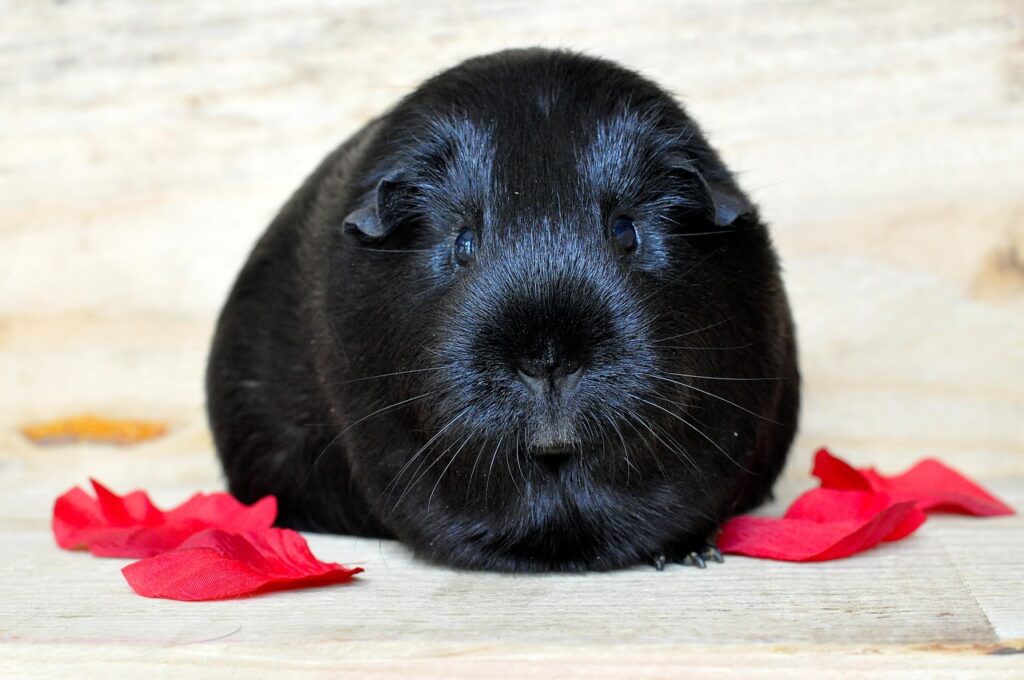
Alternative Fruits for Guinea Pigs
If pineapple isn’t suitable for your guinea pig, there are plenty of other fruit options available!
Common Options
Fruits like blueberries, strawberries, and raspberries also make great treat options for guinea pigs. These fruits provide essential vitamins and antioxidants, and your guinea pig is sure to love them!
Seasonal Fruits
Offering seasonal fruits can provide variety and ensure your guinea pig gets a range of nutrients. Apples (without seeds), pears, and melons are good options. Seasonal fruits can keep your guinea pig’s diet interesting and provide a natural source of vitamins and minerals.
When offering alternative fruits, always introduce them gradually and in small quantities. Monitor your guinea pig’s response to new foods and adjust their diet accordingly.
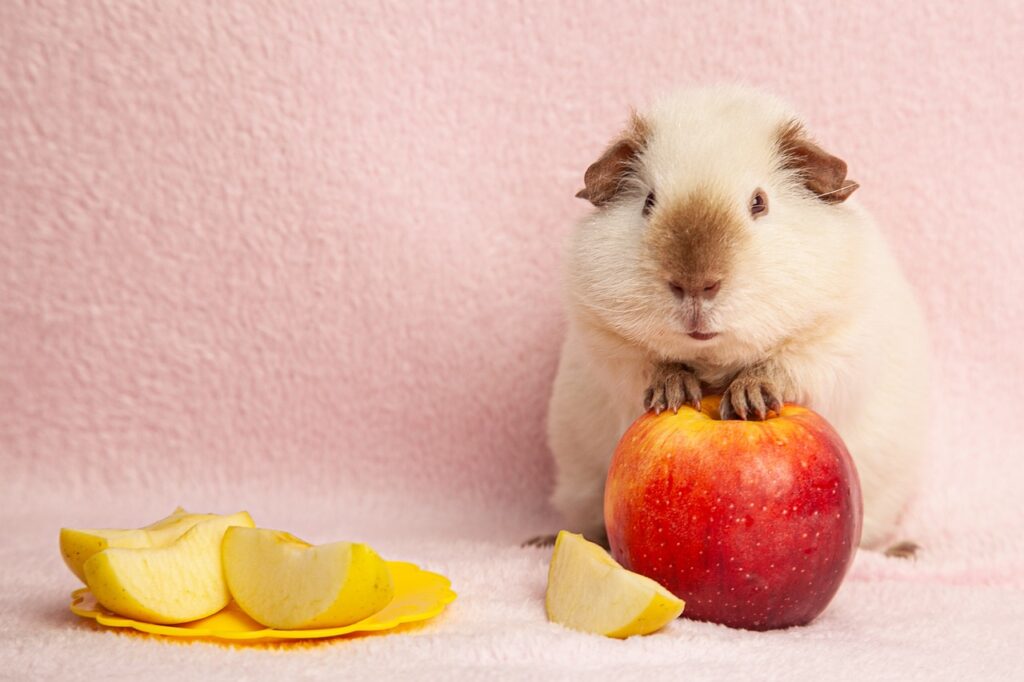
Frequently Asked Questions
Is pineapple juice safe for guinea pigs?
No, pineapple juice is not safe for guinea pigs due to its high sugar content and lack of fiber. Always stick to fresh pineapple in small portions. The concentrated sugars in juice can lead to rapid spikes in blood sugar levels, which is harmful to guinea pigs.
Can guinea pigs eat canned pineapple?
Canned pineapple often contains added sugars and preservatives, making it unsuitable for guinea pigs. Always opt for fresh pineapple. The preservatives and syrups used in canning processes can be harmful to guinea pigs and lead to digestive issues.
What should I do if my guinea pig overeats pineapple?
If your guinea pig overeats pineapple, monitor them for any signs of digestive upset or discomfort. Provide plenty of hay and water, and consult a veterinarian if symptoms persist. Ensure they have access to their regular diet to balance their digestive system.
How often can guinea pigs eat pineapple?
Guinea pigs can eat a square inch slice of pineapple once or twice a week. Moderation is key to preventing any health issues related to high sugar intake. Always vary their diet with other safe fruits and vegetables to ensure a balanced nutrient intake!
Are pineapple leaves safe for guinea pigs?
No, pineapple leaves are not safe for guinea pigs. They can be tough and difficult to digest, potentially causing blockages or injuries.
Can baby guinea pigs eat pineapple?
It’s best to avoid feeding pineapple to baby guinea pigs as their digestive systems are still developing. Stick to a diet of hay, pellets, and safe vegetables. Introducing fruits too early can disrupt their delicate digestive balance and cause issues.
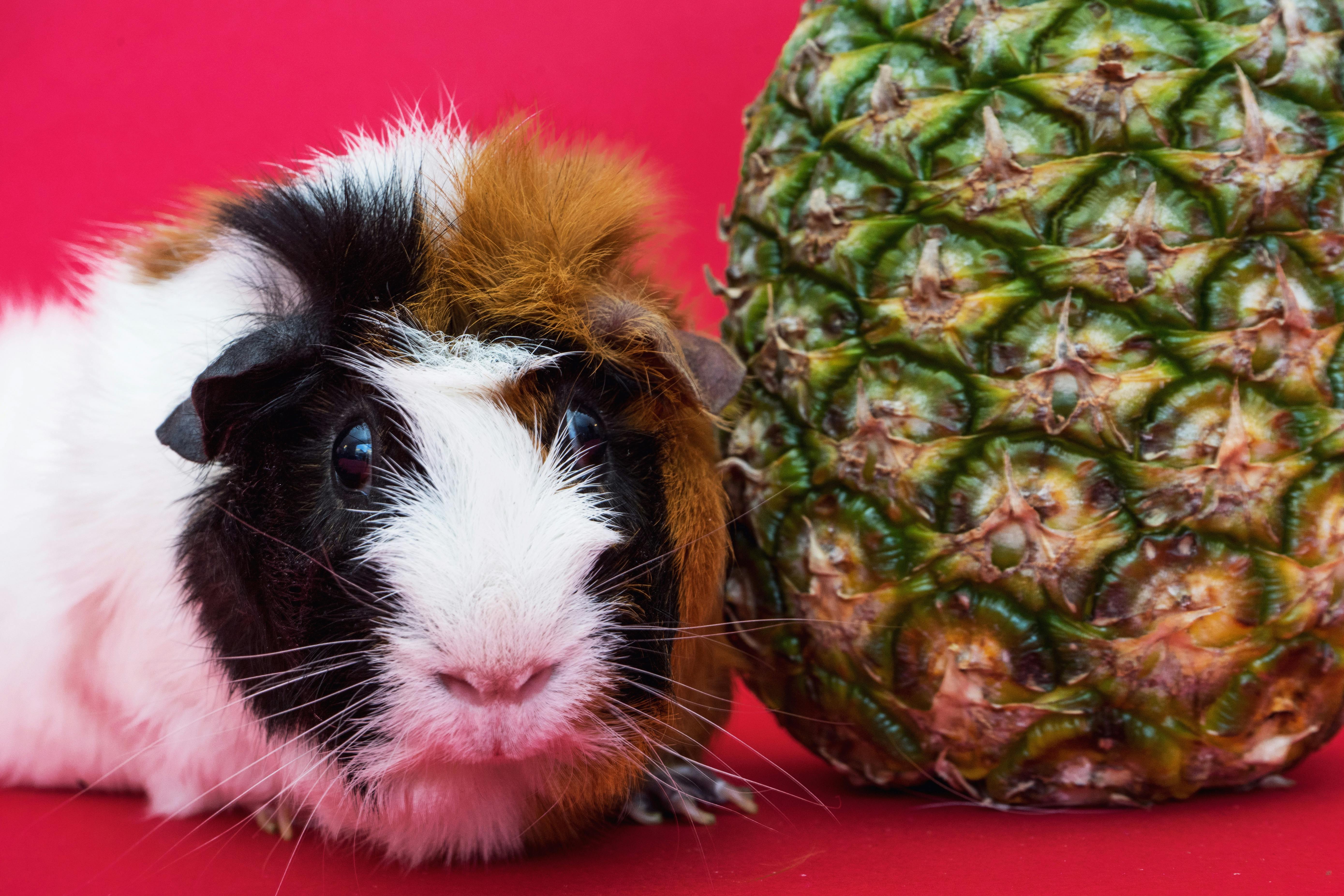
Conclusion
While guinea pigs can eat pineapple, it should be given in moderation. The high Vitamin C content can be beneficial, but the high sugar and acidity levels mean it should only be an occasional treat. Always monitor your guinea pig for any adverse reactions and consult a veterinarian if you have any concerns.
By maintaining a balanced diet and introducing new foods carefully, you can ensure your guinea pig stays healthy and happy!


